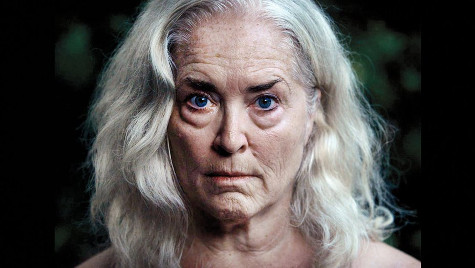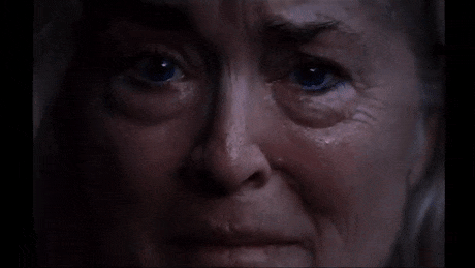
For a number of reasons, it’s logical for people to perceive that the quality of indie cinema has diminished since the dawn of the new millennium. After the auteur slump in the early 1980s, filmmakers like David Lynch and the Coen Brothers brought indie prominence back to the forefront of American cinema, ushering in the “VCR Generation” canon with filmmakers such as Paul Thomas Anderson and Quentin Tarantino. Unfortunately, after this fruitful indie boom, studio mandates became even more strict in the ever-changing technological climate. Budget restraints and other obstacles made it nearly impossible for even established filmmakers to develop the films that they wanted (explained in further detail in this excellent article here).
For these concerns, we didn’t see the emergence of many great new American filmmakers after the year 2000 (although with recent debut features such as Jeremy Saulnier’s Blue Ruin and Ryan Coogler’s Fruitvale Station, one could make a case we’re reaching a new influx). However, one of last year’s most under-looked releases was a stark debut feature from a young Texan man named Trey Edward Shults. Krisha is a film experience that immediately comes off as transgressive, and with Shuts’s promising sophomore feature, It Comes at Night, soon to be released, it’s the ideal time to seek out its predecessor.
Set during a family gathering on Thanksgiving, Krisha focuses on its title character: a 60-something woman (portrayed by Shults’s real-life aunt Krisha Fairchild) that’s become estranged from her family for years due to her substance abuse. Krisha comes home to her sister’s house with vows not to return to her self-destructive path. While the visit goes well at first, things take a turn for the tumultuous when elements of Krisha’s past come up. She finds herself at odds with her family again, despite her best intentions.

Writer/director Trey Edward Shults boasts an artistic success story that most millennials couldn’t even conceive of. Avoiding a film school education, Shults instead got a better opportunity by landing an internship with none other than Terrence Malick. He would go on to work on three of the maverick director’s films—starting with Tree of Life—firmly planting his foot in the film industry and even landing a camera PA gig on Jeff Nichols’s Midnight Special.
Still, Shults found time to pursue his own personal projects. He began making short films, including a 2011 project that would become the basis for Krisha. Backed by a Kickstarter campaign (that made more than $4,000 past the projected goal), Shults shot Krisha in nine days, premiering it at the 2015 South by Southwest Festival and screening it at Cannes afterward.
It was quickly snatched up by A24, who signed Shults to a two-picture deal, agreeing to produce and distribute his next feature. Only in his late 20s during the whole process, Shults was frankly shocked by it all, even going so far as to say that this was the “fantasy version” of what he intended for Krisha.
The film hosts a wealth of unforgettable images … and it’s so efficiently paced that when the film’s final shot arises (a bookend), one can’t help but feel that they’ve experienced a complete and succinct work of art.
Upon watching the film, it becomes evident why it reached such acclaim and acknowledgment. As a writer/director, Shults holds two very important qualities: passion and strategy. Inspired by a real-life family incident that involved his cousin having a relapse during a Thanksgiving reunion, Shults took a risk by casting his own family and friends rather than professional actors. While seemingly a naïve tactic, not once do we ever feel that these characters are anything less than real people; the events and feelings in the movie have actually been experienced by the cast that's portraying them. Shults even goes so far as to have his characters retain the same names as the actors who play them, including casting himself in the obvious but necessary role of Krisha’s nephew Trey.
Krisha herself gives a paramount performance in the movie, coming off as an actor who has decades more experience than she actually does. Playing a character that’s a large departure from the actual Krisha (Shults describes his aunt as being a good-natured hippie that doesn’t drink), it’s still observable that Fairchild went to dark places for this role. Featured in virtually every scene in the film, she communicates a harrowing sense of loss in her performance, even in the scenes when she’s at her most affable.

When the final act arises, the emotional effects are significant. Couple this with the fact that we know that Krisha is having such tumultuous arguments with her real-life family members and this back-knowledge actually augments the drama.
Shot entirely in Shults’s parents’ house, the film is technically a chamber piece, yet Shults’s approach isn’t exactly minimalist. The film is filled with long takes and swirling camera work that would put Shults ahead of his contemporaries just in terms of pure cinematic understanding alone, but his stylistic flourishes feel controlled. It really aids towards understanding Krisha’s desperation and loneliness, and while we know that her character is on a slippery slope with an unavoidably ugly conclusion, Shults’s method of taking us there is vibrant.
The film hosts a wealth of unforgettable images (it’s unlikely that anyone will see a nice turkey dinner the same way after one particularly gaunt shot), and it’s so efficiently paced that when the film’s final shot arises (a bookend), one can’t help but feel that they’ve experienced a complete and succinct work of art.
Krisha isn’t necessarily a movie for everyone—its harsh content will come off as overbearingly unpleasant to some—and it may have benefitted from having a few of its scenes better smoothed over. As a whole, though, Krisha is a gratifying and provocative experience as well as a disturbing portrait of motherhood that often recalls John Cassavetes’s masterpiece, A Woman Under the Influence.
Seeing that Shults’s follow-up has been shot with a larger budget and established actors, it’s mouth-watering to see what the results will be. But it’s also truthful that we know that It Comes At Night will lack a certain aspect that Krisha conjures so pervasively: the feeling of watching the very start of the next great American filmmaker.
Read Peter Foy's review of Personal Shopper (2017)!
Peter Foy is an avid reader and movie buff, constantly in need to engage his already massive pop-culture lexicon.

But they know that by doing so, they may compromise their positions near Kherson and risk defeat.